Rendering Performance
We will now take a look at how rendering performance compares.
Cinebench R23
We are using Cinebench R23 to look at multi-core and single-core performance, which is shown in separate graphs below.
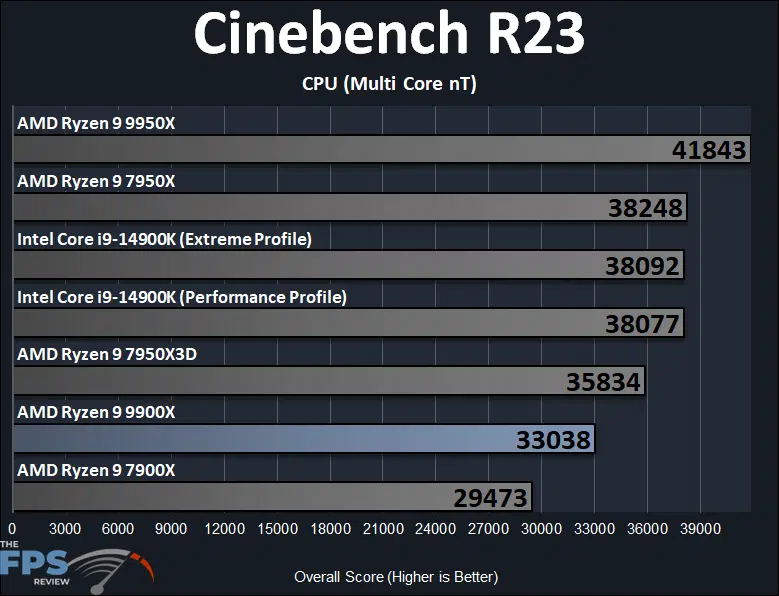
In Cinebench R23’s Multi Core testing the AMD Ryzen 9 9900X provides a 12% performance uplift compared to the previous generation Ryzen 9 7900X. This puts it under the Intel Core i9-14900K by 13%.
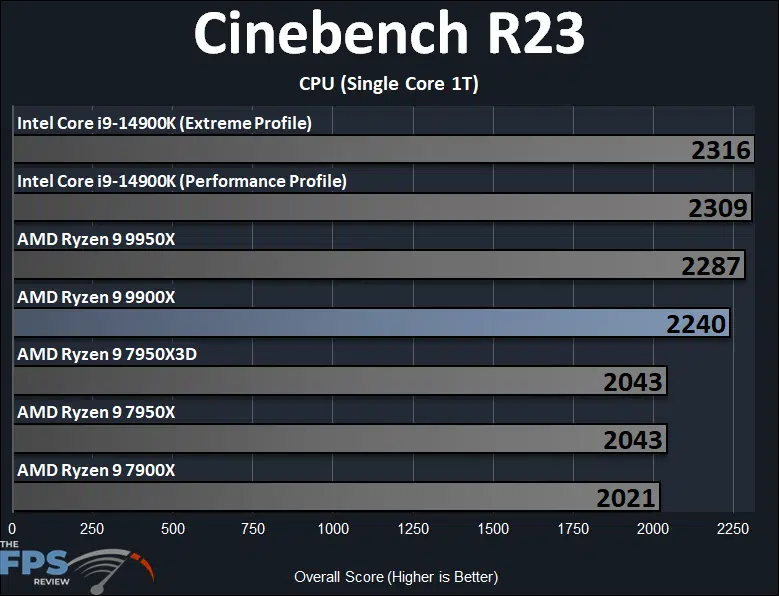
In Cinebench R23’s Single Core performance testing, we can once again see how well Zen 5 does on single-core performance compared to the previous generation Zen 4. The new AMD Ryzen 9 9900X is 11% faster than the previous generation Ryzen 9 7900X. This does put it under the Intel Core i9-14900K, however, by 3%.
Blender Open Data Benchmark
We are using the latest Blender Benchmark with Blender 4.2.0 downloaded, results are in samples per minute, with the highest being the best.
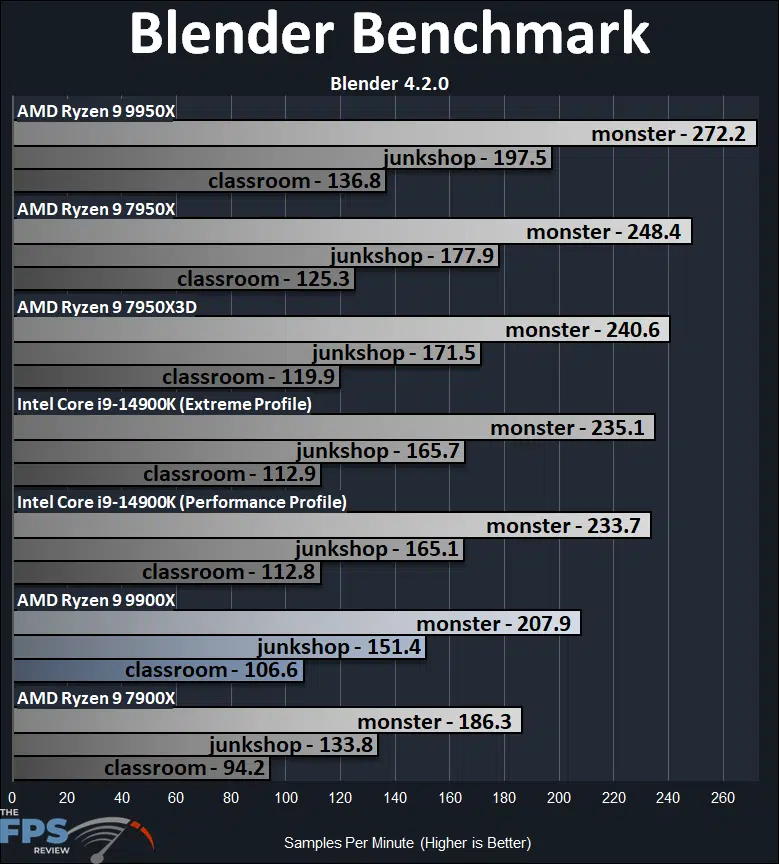
Core and thread count does matter for Blender rendering, so it isn’t surprising to see the 12-core CPUs at the bottom of this chart. The important part is that the new AMD Ryzen 9 9900X is faster than the previous generation Ryzen 9 7900X. In “monster” it is 12% faster, in “junkshop” it is 13% faster, and in “classroom” it is 13% faster compared to the previous generation Ryzen 9 7900X.
V-Ray 6 Benchmark
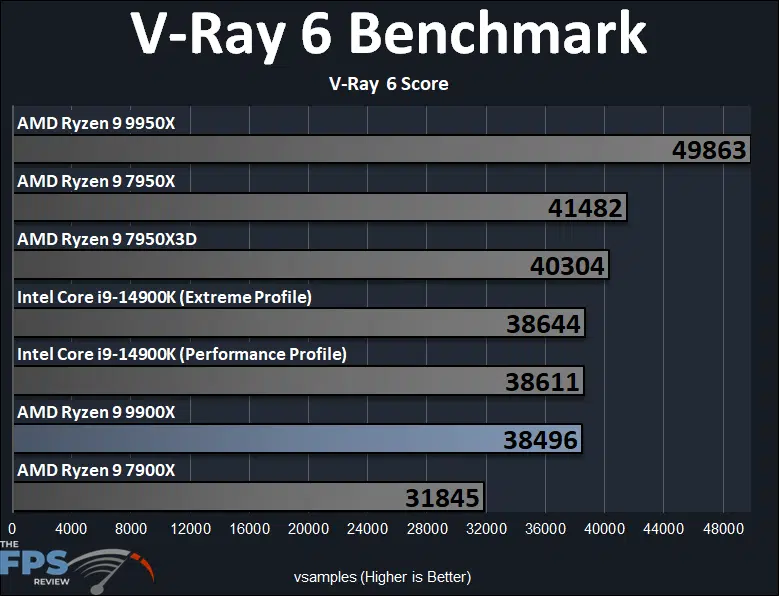
In the V-Ray 6 Benchmark, the AMD Ryzen 9 9900X does extremely well, compared to the previous generation Ryzen 9 7900X it is 21% faster, which is a pretty big jump in performance. At this performance level, it matches the Intel Core i9-14900K in the Performance Profile and comes close in the Extreme Profile as well.
HandBrake
In HandBrake, we transcode a 10-minute video file to the Creator 2160p60 4K H.264 profile preset, rendering on the CPU only. The time in minutes is reported, and lower is better.
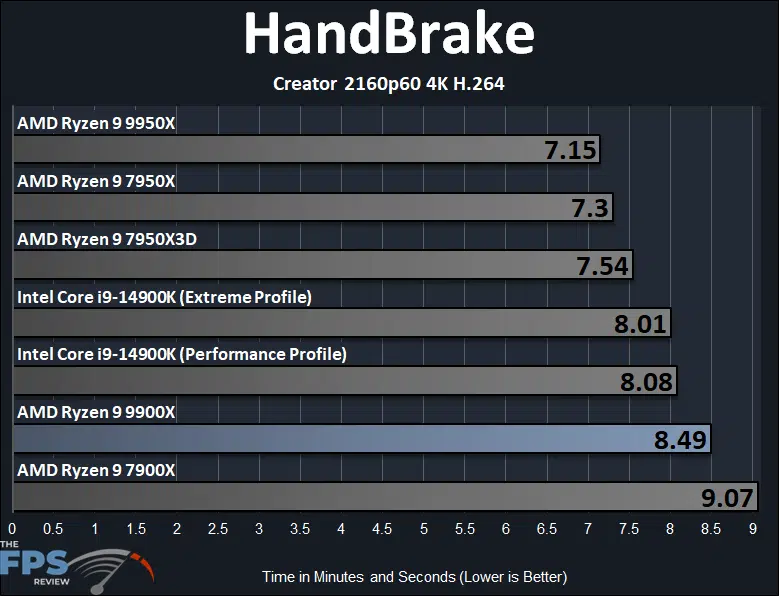
Transcoding video in HandBrake was faster on the new AMD Ryzen 9 9900X compared to the previous generation Ryzen 9 7900X by 6%. The Intel Core i9-14900K was faster by 5%.
